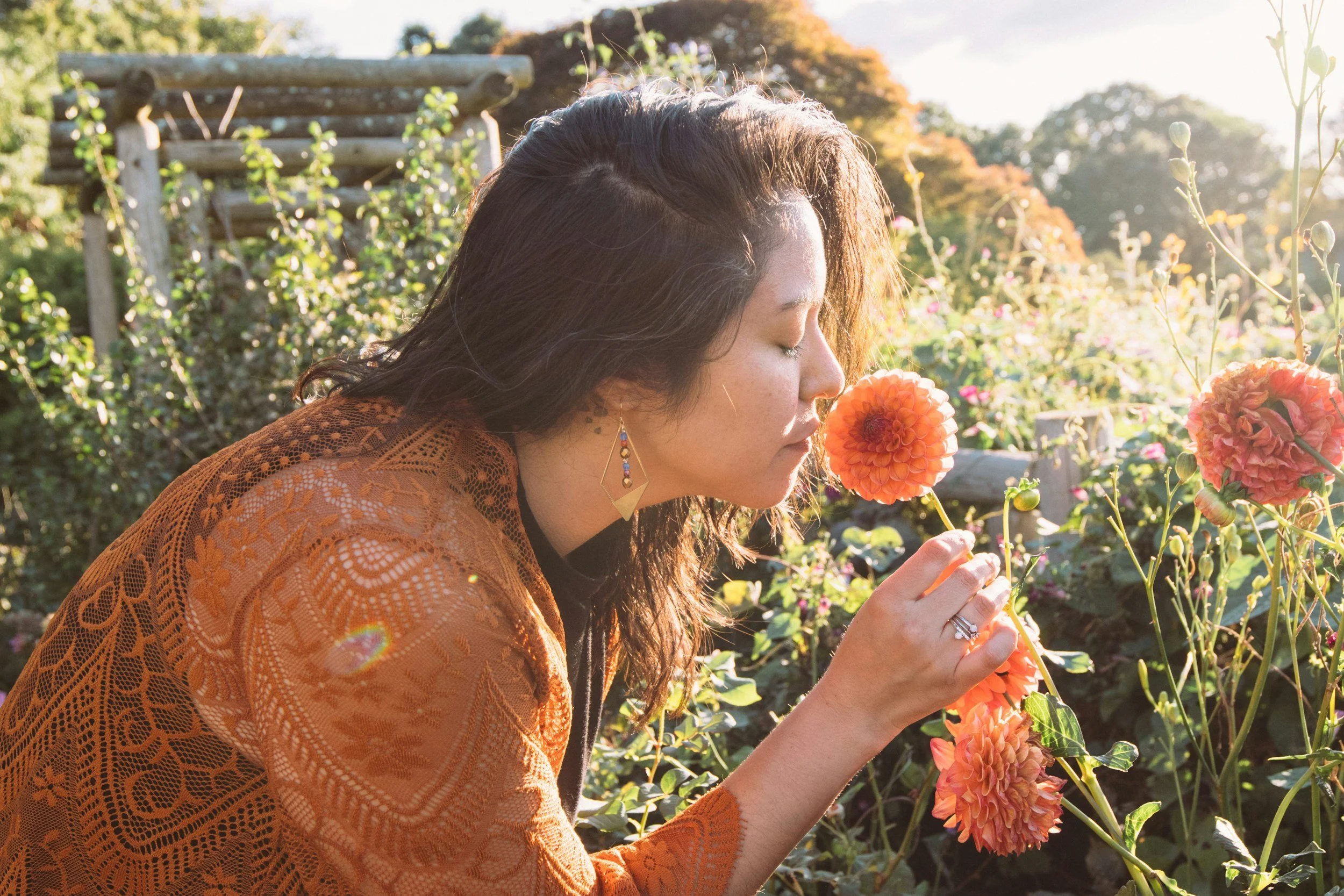
Brainspotting and Sacred Becoming: A Journey Back to Wholeness
As a sensitive cycle breaker, you’ve probably learned to function in high-alert mode—always scanning, always doing, always bracing. But your nervous system wasn’t meant to live in fight, flight, or freeze. You deserve more than survival. You deserve to feel safe in your body, not just in your thoughts.
Brainspotting is gentle, intuitive, and trauma-informed. You stay in control of your process at all times. There’s no need to perform or explain. Just your presence is enough.

Coming Home to Yourself: Inner Child Healing, Somatic Therapy & IFS-Informed Care for Sensitive Cycle Breakers
When we’ve lived through trauma or difficult experiences—especially attachment wounds or emotional neglect—parts of us adapt in brilliant ways. They become perfectionists, people-pleasers, caretakers, or critics. These aren’t flaws. They’re protectors. They’ve kept you safe.
IFS-informed therapy gives us a way to connect with these parts. Many of them are younger—you might think of them as inner children—still carrying fear, grief, or the belief that love has to be earned.

Brainspotting: A Gentle, Deep Way to Heal Trauma (When Talk Therapy Isn’t Enough)
Brainspotting is a gentle, body-based therapy that helps you process trauma without needing to re-tell the whole story. It works deep in the brain and nervous system—beyond what words can reach.
Brainspotting uses your eye position to access where trauma, stress, or emotional pain is held in your body. A trained therapist helps you find a “brainspot”—a point in your visual field linked to an unresolved experience.

Loving Without Losing Yourself: A Somatic Guide to Interdependent Relationships
What if intimacy didn’t require self-sacrifice? What if love could feel nourishing, spacious, and empowering instead of overwhelming?
This is the foundation of interdependent relationships—where you can experience deep connection without losing yourself. In this guide, we’ll explore a somatic and attachment-based approach to building relationships rooted in self-trust, mutual care, and embodied presence.

Beyond Pathology: The Koshas as a Map for Holistic Trauma Healing
The koshas, a yogic framework from the Upanishads, offer us a map of the self- not as a fragmented system of dysfunctions, but as a holistic, interconnected whole. They guide us beyond a pathologizing, symptom-driven view of trauma into a deeper, more expansive experience of healing.

The Ones Who Choose to Heal: What It Means to Be a Cycle Breaker in a World That Resists Change
Some people are born into patterns that are meant to end with them. Maybe you are one of them. Maybe you have felt it—that deep knowing that something in your family, your culture, your history needs to change. The weight of unspoken pain. The echoes of past wounds. The inherited beliefs that tell you who you are supposed to be.

You’re Not Bad at Boundaries: You Were Just Taught to Feel Guilty
Because the hard part isn’t setting boundaries—it’s building up the courage to speak one's truth, and then navigating what happens afterward. It’s the panic and shame (sometimes rage) that arises when others react to boundaries poorly. It’s the deep-seated belief that others' emotional responses mean they have done something wrong. That they are bad, mean, or too much. That maybe they are crazy for expecting their boundaries to be honored at all.

Embodying Self-Love: How to Cultivate Compassion for Your Body
Many of us carry deep-seated beliefs shaped by past experiences, trauma, or cultural trauma. These beliefs can disconnect us from our bodies and leave us feeling inadequate. But here’s the truth: your body doesn’t need to be fixed. It needs to be heard. By engaging in practices that center the body, you can begin to release these patterns and replace them with compassion and trust.

How EMDR Can Help You Find Peace from Anxiety for women in oregon
EMDR is a therapy that helps you heal from past experiences contributing to anxiety. It’s not about endless analysis or talk sessions. EMDR focuses on helping your brain and body process old memories and feelings so they don’t keep showing up in the present.

Say Yes to Yourself: Boundaries for Emotional Balance and Autoimmune Support
Boundaries are not just about relationships or time management. They are about saying yes to yourself and your body and creating a life that supports healing from the inside out. Cultivating a trusting, loving relationship with your body is essential, and boundaries play a key role in that process. Think of boundaries as a practice that can help reduce stress, break intergenerational patterns, and create the emotional balance your body craves for deeper healing.

How Trauma Impacts Self-Trust (and Gentle Steps to Rebuild It)
Trauma doesn’t just affect what happened in the past—it shapes how we experience ourselves and the world in the present. Whether it came from a single life-altering event, ongoing harm, or subtle but persistent wounds, trauma can disrupt our ability to feel safe within ourselves. It can leave us second-guessing our perceptions, disconnected from our emotions, and unsure of our own inner guidance.